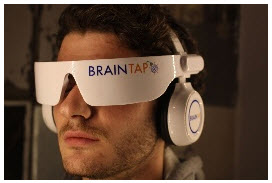
 This study group was 88 percent less likely to develop dementia!
This study group was 88 percent less likely to develop dementia!
What did they do that others don’t?
As
our population ages, scientists are scrambling to understand
neurological diseases such as dementia as well as ways to prevent or
even cure them. In the latest study on the subject, published in Neurology, researchers focused on one specific action people can take to lower their risk of cognitive and neurological decline.
In this study, which covered 1500 women in Sweden, researchers combed
through 44 years of information on physical activity levels and
cognitive tests. Scientists found that women with higher fitness levels
were 88 percent less likely to develop dementia compared to women with
average fitness. Women who were not fit had a 41 percent higher risk of
developing dementia than women with average fitness.
While it’s been common knowledge for some time now that lack of physical
fitness can lead to problems with the heart and brain, even the
scientists were surprised by the strong correlation between physical
fitness and mental health. “I was very surprised that high fitness was
so protective and that so few developed dementia in the high fitness
group.” says Helena Horder, a physiotherapist from the Center for Aging
and Health at the University of Gothenburg in Sweden.
Another study conducted at Goethe University in Frankfurt, Germany
examined the effects of regular exercise on brain metabolism and memory
of participants ages 65 to 85. They found that physical activity
influenced brain metabolism in part by preventing an increase in
choline, which is often found as a result of loss of nerve cells such as
that found in Alzheimer’s. Regular physical exercise led to stable
choline concentrations in the study group, but choline increased in the
control group that was not physically active. They concluded that
regular physical exercise not only enhances physical fitness but also
has a positive impact on our brains and protects our cells.
For brain health, it’s recommended that we get a bare minimum of 30
minutes of exercise two to three times a week. If you’re not currently
physically active, you might start with shorter sessions of ten to 15
minutes at a time, adding up to 30 minutes total in a day. Once you’re
more active, increase the duration and intensity of your activity.
Building muscle is also important for both physical and brain health.
Once you’re feeling more fit, add strength training to your
cardiovascular routine.
As scrutiny into dementia and other brain disorders grows, scientists
will continue to focus on pinpointing when during our lives the fitness
benefits start affecting our risk for dementia, but it’s always a good
idea to get started getting healthy right away. According to Horder,
“What the results do show is that even though genes can work against you
for developing dementia, through behavior you can prevent a lot of
diseases.”
What better reason do you need to get started on that much needed exercise routine today?
If you’ve had trouble with motivation in the past, the BrainTap mobile
app has several audio sessions designed to give you the motivation you
need to get started and then make regular physical exercise a part of
your normal routine. And, just as your body needs recovery time, so does
your brain.
With regular braintapping sessions, you’ll be protecting your brain and
gaining all the benefits exercise has to offer in no time.
Order Your BrainTap Today!

For More Information Call
(866) 338-4883
Or Go To www.brimhall.com
(Only registered customers can rate)
There are no comments for this product.